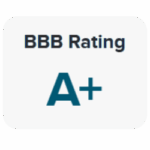
Escaping Your Timeshare: Legal Options for Freedom
If you’ve ever wondered how can I get rid of my timeshare legally, you are not alone. The burden of escalating maintenance fees and restrictive booking windows is a common issue for many timeshare owners. Here’s an overview of legal exit options you have to reclaim your financial freedom:
Quick Exit Options
– Cancellation during the rescission period: Use state laws to cancel within a few days of purchase.
– Negotiation: Contact your timeshare developer to discuss forfeiture or surrender programs.
– Renting out: A temporary solution to cover maintenance fees.
– Selling: A challenging yet possible option to offload your timeshare.
– Using expert timeshare exit services: Professional help to steer complex contracts and legalities.
A timeshare might initially seem like a dream come true, promising annual vacations in beautiful locations. However, many owners quickly face frustration due to hidden fees, deceptive sales tactics, and limited availability. According to a study by Wesley Financial Group, a staggering 71% of timeshare owners feel misled, making it essential to understand your legal exit options.
I’m Tyler Wren, co-founder of Lonestar Transfer, here to guide you through how to legally get rid of your timeshare. With over 15 years in the industry, helping people escape the financial burden of unwanted timeshares has become my life’s work.

Let’s dive into the detailed steps you can take to escape your timeshare legally and get your life back on track.
Understanding the Rescission Period
The rescission period is your golden opportunity to cancel your timeshare contract without any penalties. This brief window varies by state and is crucial for anyone regretting their timeshare purchase.
State Laws and Cancellation Window
Each state has its own laws regarding the rescission period. For example, in Kansas and Ohio, you have just three days to cancel, while in Alaska, you get up to 15 days. The rescission period starts either on the day of purchase or when you receive the public offering statement, depending on the state’s specific regulations.
To find out the exact rescission period for your timeshare, look up the laws in the state where your timeshare is located, not where you live.
How to Use the Rescission Period
If you’re still within the rescission period, here’s how to cancel your timeshare:
1. Write a Cancellation Letter
Your cancellation letter should include the following details:
– Your full name
– Contact information
– Names on the agreement
– Name of the timeshare developer
– Agreement contract number
– Purchase date
– Today’s date
– A clear statement of cancellation
– The total amount you paid
– A request for a full refund
– A demand for acknowledgment of receipt within the rescission period
Here’s a sample template for your letter:
Date: ___
To: ___
Subject: Notice of Rescission
Dear ___,
I am writing to formally notify you of my intention to rescind the agreement between __ and __, dated ___.
According to the terms of the agreement, I have the right to cancel the agreement within ___ days of its execution. I am exercising this right and hereby provide notice of my intention to cancel the agreement.
Please confirm that you have received this notice and that the agreement has been terminated. I expect to receive a full refund of any payments made under the agreement within ___ days of the date of this letter.
Thank you for your prompt attention to this matter. If you have any questions or concerns, please do not hesitate to contact me.
Sincerely,
[Your name]
2. Send via Certified Mail
Use USPS certified mail to send your cancellation letter. This ensures the resort signs for it and provides proof of delivery. Keep extra copies of the letter in case you need to send it again. Some resorts may claim they never received your notice, so having proof is essential.

3. Follow Up
Once you’ve sent your letter, follow up with the resort to confirm they received it and that your cancellation is being processed. Some states won’t start your rescission period until you receive the cancellation address and instructions, so be diligent.
Watch Out for Penalties
Some resorts may try to charge cancellation penalties or other fees. Be aware that many states have laws prohibiting these charges during the rescission period. Keep an eye on any attempts to impose these fees and challenge them if necessary.
By understanding and acting within the rescission period, you can legally and swiftly get rid of your timeshare. If you miss this window, other options are available, but they may require more effort and potentially incur costs.
Next, let’s explore how to contact your timeshare developer for other potential exit strategies.
Contact the Timeshare Developer
If you missed the rescission period, your next step is to contact the timeshare developer. This can sometimes lead to a successful exit from your timeshare agreement. Here are the key aspects to consider:
Developer Policies
Every timeshare developer has its own set of policies regarding timeshare exits. These policies are often outlined in the contract you signed. Before making any decisions, thoroughly review your timeshare agreement to understand your rights and obligations.
Tip: Developers may offer various exit options, but these are usually very tricky to make happen and they do not refund you any money. Few timeshare owners actually succeed.
Relinquishing Ownership
Some developers may allow you to relinquish ownership of your timeshare. This means you give up all your rights and obligations associated with the property.
- Check if the developer has a formal surrender program. Programs like these are designed to help you exit your contract, but they come with specific terms and conditions. To be clear the resort wants to keep you locked in, so this process is also difficult and usually incredibly time consuming.
- Be prepared for paperwork. Developers often require extensive documentation to process your request. Ensure you have all necessary documents ready to avoid delays.
Surrender Programs
Surrender programs are essentially formal processes that allow you to return your timeshare to the developer. These programs can be a viable option, but they are not always straightforward.
- Eligibility: Not all timeshare owners qualify for these programs. Your eligibility may depend on factors like your payment history and the specific terms of your contract.
- Documentation: Developers will usually require detailed paperwork to process your surrender request. This can include proof of ownership, payment history, and a formal request letter.
- Fees: Some developers may charge a fee for processing your surrender request. Be sure to ask about any potential costs upfront.
Case Study: A Better Way to Exit Your Timeshare
A timeshare owner in Florida tried to exit her contract through a developer’s surrender program. She followed all the guidelines, submitted the required documents, and paid a processing fee. However, the process was long and stressful, and she faced many hurdles. After months of waiting, she was still not free from her timeshare obligations.
Realizing the challenges, she decided to seek professional help. She contacted Lonestar Transfer, who took over the negotiations and legal processes. Within a few months, Lonestar Transfer successfully canceled her timeshare contract. She was finally free from the burdens and fees, all without the stress she faced before.
Warning: Be cautious of upsell tactics. Developers may try to convince you to upgrade your timeshare instead of relinquishing it. Upgrades rarely solve the underlying issues and can lock you into a more expensive contract.
By contacting your timeshare developer and exploring their policies and surrender programs, you can take a significant step towards legally exiting your timeshare. If this route proves unfruitful, other options like renting out your timeshare may provide a temporary solution.
Renting Out Your Timeshare
Renting out your timeshare can be a short-term solution if you’re looking to alleviate some of the financial burden while figuring out a permanent exit strategy. However, it comes with its own set of challenges and limitations.
Short-Term Solution
Renting out your timeshare can help you cover some of the costs, such as maintenance fees and special assessments. By renting it out, you can generate some income that can offset these expenses. This approach can buy you some time while you explore other long-term exit options.
Resort Restrictions
Before you list your timeshare for rent, it’s crucial to understand the resort’s policies regarding rentals. Many resorts have strict rules that can limit or even prohibit renting out your timeshare. Violating these rules could result in fines or other penalties.
Key Points to Check:
- Rental Fees: Some resorts may charge additional fees for renting out your timeshare. Make sure to factor these into your rental price.
- Approval Process: Some resorts require you to get approval before you can rent out your timeshare. This process can be time-consuming, so plan ahead.
- Insurance Requirements: Ensure that you have appropriate insurance coverage for renters, as some resorts may require it.
Example: One timeshare owner tried to rent out their property through a rental platform, only to find out later that their resort had a strict no-rental policy. This resulted in fines and additional fees, making the situation even more stressful and costly.
By understanding the resort restrictions and using reputable rental platforms, you can make the most out of this short-term solution. However, keep in mind that renting out your timeshare is not a permanent fix and comes with its own set of challenges.
Selling Your Timeshare: A Tough Option
Selling your timeshare might seem like a straightforward way to get out of your contract, but it’s often more difficult than it sounds. Here’s why and how you can approach it.
Resale Market and Depreciation
First, understand that timeshares generally depreciate in value. The average price of buying into a timeshare is around $24,140, but many are listed for as low as $1 on resale platforms. This significant drop in value makes selling your timeshare a tough and often financially painful option.
Listing Costs
Listing your timeshare for sale involves costs. You might need to pay for advertisements on various platforms, and some websites charge fees to list your property. These costs can add up, especially if your timeshare stays on the market for a long time.
Eligibility
Before you list your timeshare, check your eligibility. Some timeshare contracts have clauses that restrict resale. Review your contract carefully to ensure you’re allowed to sell.
Valuation
Next, you’ll need to determine the current market value of your timeshare. This can be tricky, given the depreciation. Look at similar listings on resale platforms to get an idea of what your timeshare might be worth. Be prepared to set a competitive price to attract buyers.
Listing Platforms
When it comes to listing your timeshare, there are several platforms you can use:
- RedWeek
- Timeshare Users Group (TUG)
- Craigslist
- eBay
Each platform has its pros and cons. RedWeek and TUG are specialized for timeshares and have a targeted audience, while Craigslist and eBay have a broader reach but might attract less serious buyers.
Steps to Sell Your Timeshare
- Check Eligibility: Ensure your contract allows for resale.
- Gather Documents: Collect all necessary paperwork, including the deed and maintenance fee statements.
- Determine Value: Research similar listings to set a competitive price.
- Choose a Platform: Decide where to list your timeshare.
- Create a Listing: Write a detailed description and upload high-quality photos.
- Be Responsive: Answer inquiries promptly to keep potential buyers interested.
Selling your timeshare can be a lengthy and complex process. It often involves a financial loss, but it’s one way to free yourself from the ongoing costs and responsibilities.
Hiring a Contract Law Attorney
Sometimes, selling your timeshare or handling it on your own just isn’t enough. You might need professional help, especially if you’re dealing with multiple contracts or complex legal terms. Here’s why hiring a contract law attorney can be a game-changer.
Multiple Contracts
If you’ve taken timeshare “upgrade” offers or made changes to your original agreement, you might have multiple contracts to steer. Each contract can come with its own set of obligations and restrictions.
Derek Potts, managing partner of The Potts Law Firm, emphasizes the importance of acting quickly if you have doubts about your purchase. He says, “Timeshare contracts offer anywhere between 3 to 15 days to cancel a contract.” Beyond this period, you may need legal expertise to untangle multiple agreements.
Legal Expertise
Hiring a Contract Law Attorney
Timeshare law is tricky, and having a lawyer with experience in this area can make a big difference. Many timeshare owners feel misled during their purchase. A knowledgeable attorney, like ones on staff at Lonestar Transfer, can identify any misrepresentations or deceptive practices that could help you legally exit your contract. They will guide you through the complex legal process and ensure you understand your rights and options. This expertise is crucial in effectively and legally freeing yourself from unwanted timeshare obligations.
Key Questions to Ask Potential Lawyers:
– Do they specialize in timeshare law?
– Have they successfully helped others exit their timeshares?
– Can they handle vacation club contracts if you have one?
Cost Considerations
Hiring an legal help isn’t always cheap, but it can be worth it. Some organizations, like Lonestar Transfer, offer free consultations, so you can discuss your case without upfront costs. Be sure to ask about their fee structure and whether they are bonded and insured for added peace of mind.
Costs to Expect:
– Consultation Fees: Some lawyers offer free initial consultations.
– Hourly Rates: Vary widely based on expertise and location.
– Flat Fees: Some lawyers may offer a flat fee for handling your case.
Avoid Scams: Beware of lawyers who demand large sums upfront without a clear plan. Always check client reviews and ask for testimonials to ensure you’re hiring someone reputable.
Next, we’ll explore how you can get rid of your timeshare legally without a lawyer.
How Can I Get Rid of My Timeshare Legally Without a Lawyer?
Self-Help Options
You don’t necessarily need a lawyer to get out of a timeshare. There are self-help options that can save you money and help you legally exit your timeshare. The first step? Understanding your contract.
- Read Your Contract: Look for any clauses that mention cancellation or exit options.
- Check State Laws: Some states have rescission periods allowing you to cancel within a few days of purchase.
If you still have questions, you can always contact your timeshare company directly.
Contact the Timeshare Developer
Reaching out to your timeshare developer can be a straightforward way to relinquish ownership. Many developers have specific programs or policies in place for owners looking to exit their contracts.
- Ask About Exit Programs: Some developers offer exit or surrender programs. These are typically very tricky to work within and often take a very long time to accomplish.
- Avoid the Sales Department: Speak with the owner or member services, not salespeople. They are there to keep you, not help you leave.
Resale Market: A Tough Option
Selling your timeshare on the resale market is another option, but it comes with challenges. Timeshares often depreciate, and the market is flooded with sellers.
- Eligibility: First, find out if you’re eligible to sell. If you still owe on your mortgage, you may not be able to list it.
- Valuation: Speak with a real estate agent or check online to understand the current market value.
- Listing Platforms: Websites like eBay, Craigslist, and specialized timeshare resale sites can help you list your property.
Important Note: Selling a timeshare can take a long time and may cost you in listing fees. Be prepared for the possibility that you might sell it for much less than you paid.
By following these steps, you can steer the complexities of getting rid of your timeshare legally without the need for a lawyer. Next, we’ll answer some frequently asked questions about timeshare exit.
Frequently Asked Questions about Timeshare Exit
How much does it cost to get out of a timeshare?
The cost to exit a timeshare can vary widely. Fees can range from $7,000 to over $15,000, depending on the exit strategy you choose. The overall cost depends on the specifics of your contract, your resort and other unique details to your property.
Exit Strategies and Costs:
– Direct Negotiation with Developer: Often the least expensive, sometimes even free.
– Timeshare Exit Companies: Can cost between $3,000 and $15,000.
– Legal Assistance: Hiring a lawyer can also be costly, averaging between $5,000 and $15,000.
Can I just abandon my timeshare?
No, abandoning your timeshare is not a viable option. If you stop making payments, the timeshare developer can take legal action against you. This can result in foreclosure, damaging your credit score and making it difficult to secure loans or credit in the future.
Legal Consequences of Abandonment:
– Credit Impact: Non-payment will be reported to credit bureaus, severely impacting your credit score.
– Foreclosure: The developer can foreclose on your timeshare, which is a legal process that will further harm your financial standing.
– Legal Action: Developers may take you to court to recover unpaid fees, adding legal costs to your burden.
Can you legally terminate a timeshare?
Yes, you can legally terminate a timeshare, but it requires following specific legal steps. The most straightforward way is through the rescission period, which is a window of time after purchase where you can cancel the contract without penalty. This period varies by state, generally ranging from 5 to 15 days.
Rescission Laws and Contract Termination:
– State Regulations: Each state has different laws regarding the rescission period. Make sure to check the laws applicable in your state.
– Cancellation Letter: To terminate within the rescission period, you must send a cancellation letter that complies with your contract’s terms and state laws.
– Certified Mail: Always send your cancellation letter via certified mail to have proof of delivery.
Understanding these aspects can help you make informed decisions about how to get rid of your timeshare legally. Next, we’ll summarize the key points and how Lonestar Transfer can assist you in this process. If you are outside the rescission period, Lonestar Transfer can still help.
Conclusion
Navigating the complexities of getting rid of a timeshare can be daunting. From understanding the rescission period to exploring options like renting or selling, the process requires careful planning and attention to detail. We’ve covered the essential steps to help you understand how to get rid of your timeshare legally.
At Lonestar Transfer, we specialize in helping timeshare owners like you find a legal and efficient exit strategy. Our years of experience and high success rate make us a dependable choice for those looking to free themselves from unwanted timeshare obligations.
Here’s why you should consider us:
- Proven Track Record: We have successfully assisted thousands of clients in exiting their timeshare contracts. Our expertise ensures you receive the best possible guidance custom to your specific situation.
- Money-Back Guarantee: We stand by our services with a money-back guarantee. This means if we can’t help you exit your timeshare, you don’t pay. It’s our commitment to your peace of mind and financial freedom.
- Transparent Practices: We pride ourselves on our transparent approach. From the initial consultation to the final resolution, we keep you informed every step of the way.
If you’re ready to take the first step towards regaining your financial freedom, get in touch with us for a free consultation. Let us help you steer the path to a timeshare-free future.










